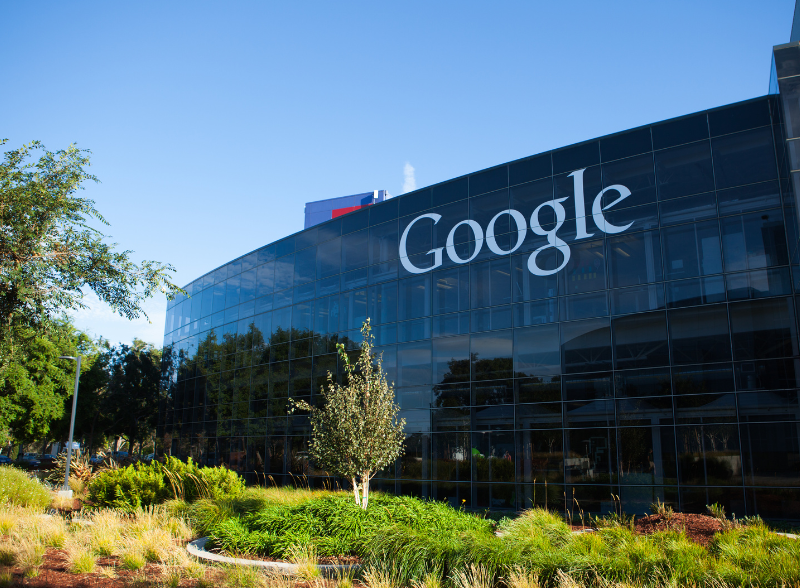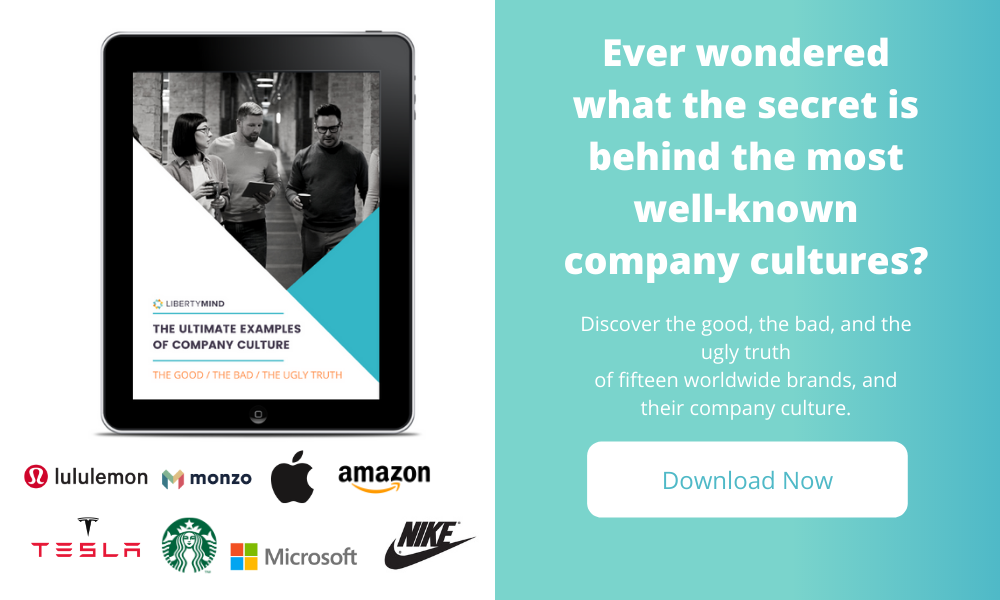Is it really so great being a Googler?
A source of information for billions of users. I dare say we can’t go a day without using – Google.
Google has risen to the rank of the most popular search engine in the world. Not only does it answer our every query, but the company also provides services and products in computer software and hardware, cloud computing, artificial intelligence, and the advertising business. Google has been named among the most valuable brands with its value totalling $309 billion. The company is dedicated to increasing possibilities, diversifying its workforce, and developing products that improve people’s lives.
It all sounds awesome to be Google, but does its company culture live up to the hype?
Google’s culture isn’t what it used to be and what we see being advertised in appealing recruitment posts. The once iconic tech giant that stood tall on the peaks of Silicon Valley as the most coveted for aspiring tech employers, has now become a place of secrecy, tension and unrest.

Where it all began
Google was founded in 1998 by two Stanford University Ph.D. students, Larry Page and Sergey Brin, with the goal of organising the world’s information and making it universally accessible and useful. The company was initially incorporated as a private research project and was later renamed Google, a play on the word “googol,” which is a mathematical term for the number 1 followed by 100 zeros.
In 2000, Google launched its first major product, the Google Search engine, which we have all grown to love and can’t live without. The search engine quickly gained popularity due to its speed and accuracy. The company’s innovative ranking algorithms, which used PageRank to determine the relevance of search results, revolutionized the search industry and made Google the dominant player in the market.
Today, Google is one of the largest and most influential technology companies in the world, with over 100,000 employees and operations in over 100 countries. The company continues to focus on innovation and growth, and its products and services continue to play a major role in shaping the way we live, work and communicate.
Googlers to Nooglers - the Google culture
New hires are affectionately known as Nooglers, while long-term employees are known as Googlers. Aside from cute names and cool branded paraphernalia, is it really a great place to work at?
Google is a consistent top-ranking company in Fortune’s Best Companies to Work For list and is featured in Glassdoor’s Best Places to Work list every year. But does this really mean anything except for culture-washing, when the voices exiting Google are sharing workplace horror stories.
The Google culture has been built on years of experimentation and trial and error and although it seemed to have figured out the perfect secret formula to amazing company culture, Google has hit some rough patches. (And that’s putting it nicely!)
Let’s take a look at what the company would like you to believe about their culture . . .

Transparency and open communication (sort of)
Google encourages all employees to share their voices. One key aspect of Google’s company culture was its emphasis on transparency and open communication.
A component to supporting this notion was regular “TGIF” (Thank God It’s Friday) meetings where company leaders provided updates and could answer questions from employees. People were encouraged to make their opinion and complaints known. This open communication helped to build trust and a sense of community among employees and leadership.
This style of “townhall” meeting is popular among many brands, but sometimes leaders aren’t equipped to deal with criticism, and sometimes it can do more harm than good when complaints are heard but no action is taken. It creates despondency among people. Unfortunately, this was the case with Google, and so instead of improving this key aspect of its culture and making it work, Google stopped their openness. Yes. No more TGIFs.
In 2019, CEO Sundar Pichai sent an email blast to his 100,000 employees, cutting back the company’s meetings. The bi-weekly meeting had become fraught as it increasingly reflected Google’s tensions as opposed to its aspirations. The meetings were then limited to once a month and were constrained to, sticking to “product and business strategy.”
Google showed once again that rather than improve meetings, and the purpose of meetings, they would just do the classic corporate move of cull meetings, and put their hands over their ears.
Just because you take away your employee’s platform to complain, doesn’t mean that they stop complaining. They’ll find another outlet to vent their frustration and dissatisfaction. A platform where the company is unable to effectively work through outcomes.
Focus on Innovation and Creativity (at a cost)
Another important aspect of Google’s culture was its focus on innovation and creativity. The company encourages employees to take risks and think outside the box, and it provides them with the resources and support they need to do so.
Google’s “20% time” policy, for example, allowed employees to spend 20% of their working time on projects of their own choosing. This had led to the development of some of the company’s most popular products, such as Google Maps and Gmail.
However, this drive and pressure for innovation gave rise to a hyper-competitive work environment and has been criticized for promoting a culture of overwork and burnout.
Employees who work on side projects are often expected to work long hours, weekends, and even holidays to meet project deadlines. This can lead to a culture of presenteeism, where employees are expected to be at work even when they are not productive.
While the idea of the “20%” was inspiring, the way Google approached this aspect of their culture was more about competition, rather than collaboration and intrapreneurship. And the that “20%” didn’t become a part of a Googlers work, it become another job, on top of their job.

People are important (only when it suits Google)
If there’s one brand who would be the first to replace people with robot – it would be Google.
Outwardly, Google places a strong emphasis on work-life balance, with flexible working hours and generous paid time off. The company also offers a wide range of benefits, including free meals and snacks, on-site fitness classes, and a variety of health and wellness programs. Google also provides employees with generous retirement benefits and stock options.
But these plaster perks only encourage people to work longer hours at the office, and don’t account for the poor practices that happen at a deeper level within Google’s workplace culture.
In 2018, it was revealed that Google had paid a $90 million settlement to a former executive, Andy Rubin, who had been accused of sexual harassment. The settlement sparked protests from employees, who demanded that the company do more to address sexual harassment and misconduct. The protests culminated in a walkout of thousands of employees at Google’s offices around the world. The walkout was a rare show of collective action by tech employees, who are often reluctant to speak out against their employers.
In response to the walkout, Google’s management announced several changes to its policies and practices, including ending forced arbitration for sexual harassment and assault claims, and increasing transparency around misconduct investigations. However, many employees and activists have criticized these changes as inadequate and insufficient. They argue that Google’s toxic work culture is deeply ingrained in the company’s management style and values, and that real change will require a fundamental shift in how the company operates.
Top talent (but lacking diversity)
One of the main pros that are declared when working at Google is the opportunity to work with some of the brightest and most talented people in the industry. Google attracts top talent from around the world, and the company’s playful campus means that employees have the opportunity to work with and learn from people at all levels of the organisation.
But, talent brings us to the underrepresentation at Google.
The company has been brought into the spotlight multiple times and criticised for its underrepresentation of certain demographic groups in its workforce, particularly in terms of gender and race.
One of the main issues is the lack of gender diversity in the workforce. As of 2021, women made up only 31% of Google’s global workforce and only 22% of technical roles.
This lack of gender diversity is particularly striking in leadership positions, where women make up only 28% of leadership roles. The lack of representation of women in technical roles can be attributed to a number of factors, including bias in the hiring process, lack of support and mentorship for women in these roles, and a culture that can be unwelcoming to women in STEM fields.
Google has made some efforts to address these issues, including offering unconscious bias training for employees involved in hiring and promotion decisions, creating mentorship and leadership programs for women, and publicly reporting on its diversity statistics. However, these efforts have been criticized as not going far enough, with some calling for more concrete steps to address the underlying systemic issues that lead to the under-representation of women in the tech industry.
Another area where Google has been criticized for underrepresentation is in terms of racial and ethnic diversity.
While the company has made progress in increasing the representation of certain racial and ethnic groups, particularly among non-technical roles, there is still a significant underrepresentation of Black and Latino employees in the company’s workforce.
As of 2021, Black employees make up only 3.7% of Google’s US workforce, and Latino employees make up only 6.3%. The lack of representation of these groups can be attributed to a number of factors, including systemic racism in the tech industry, lack of access to education and training in technology fields, and a culture that may be unwelcoming to people of colour.
The 2023 Google Layoffs
What happens when things go bad? – Isn’t that the true test of company’s culture. That its integrity remains despite the circumstances which happen?
Google might have received the biggest criticism of all when the decision was taken to lay off around 12000 employees.
For a company that portrays to invest so much into their employees, you would expect the layoffs to be handled empathetically and in a transparent manner, right? Wrong. Instead of waking up to free coffees and warm breakfasts, in January, employees were met with locked Google accounts and distress.
Google just sent an email to the employees informing them about the layoff and announced that all their questions would be answered in a town hall meeting.
One Google employee, who worked at the company for more than 16 years and was laid off, shared with the media that, “People should give more importance to their life, rather than to their work, as tech companies treat you as 100 per cent disposable.”
Employees were locked out of their accounts in the middle of the night and the layoffs were not communicated properly, employees felt blindsided.
Employees received a notice on 20 January from Google CEO Sundar, apologising for the tough decision of the layoff, which he takes responsibility for.
In the notice, he highlights the fact that over the past 2 years, Google has seen dramatic growth and hired for a different economy than the reality we face. Companies like Google have access to the best economists at their fingertips, how could they not have accurately projected the growth of the company and the rising costs of the economy?
Or were these decisions taken by people who weren’t qualified or making decisions based on what’s best for the employees, but rather, what’s best for them? Perhaps we’ll never know what really happened at the top decision-making process.
“Work is not your life, and employers — especially big, faceless ones like Google — see you as 100% disposable. Live life, not work,” an engineering manager at the company said on LinkedIn. And how right he is. Companies like Google might be doing everything in their power to distract you with fancy offices and beautiful manifestos but at the end of the day, when it really matters, do they walk the talk? When push comes to shove, are you just a number in a faceless organisation?
Prolific culture-washing
It’s clear that there is a disconnect between how Google portrays itself and the actual experience of its employees. With great power comes great responsibility, and this seems to be a responsibility that Google has been avoiding for too long.
Google’s toxic work environment is a significant issue that must be addressed if the company is to truly live up to its reputation as an innovative and progressive employer. No matter how many times they’re given the title ‘Best place to work’ something has got to give.
The culture of overwork, burnout and lack of work-life balance at Google is a major concern that must be addressed. While the company has made some efforts to address issues of underrepresentation and create a more inclusive culture, there is still a long way to go to create a workplace that is truly welcoming and supportive for all employees.








